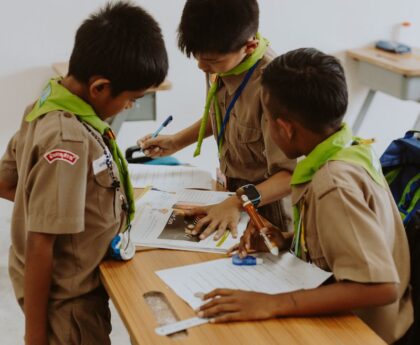Turkey Strikes Kurdish Rebels After Ankara Blast
Government Response: Air Strikes on Kurdish Rebels
Following a suicide blast that hit the interior ministry in Ankara, Turkey says it has carried out a number of air strikes on Kurdish rebels in northern Iraq. The government has reported that 20 targets were destroyed and many militants from the banned PKK rebel group were “neutralised”. The Kurdistan Workers’ Party (PKK) is considered a terror group in Turkey, the EU, UK, and US. The air strikes targeted caves, depots, and bunkers used by the PKK, aiming to neutralise the group and prevent terrorist attacks on Turkey‘s population and law enforcement agencies.
Targeting PKK Strongholds
The strikes targeted Mount Qandil, near the Iranian border, which is believed to be a PKK stronghold. This aggressive response shows Turkey‘s determination to eliminate the threat posed by the PKK. The government is aiming to ensure the security of its borders and prevent further attacks.
Attack on Ankara’s Interior Ministry
The suicide blast occurred on Sunday morning in Ankara, just hours before parliament was due to reconvene after a summer break. The attack was carried out by a group linked to the PKK, according to the PKK itself. The group, known as the Immortals Battalion, claimed responsibility, stating that they targeted the ministry because of its proximity to parliament.
The attack unfolded when one of the attackers threw a small explosive at the ministry building to distract security, while the second attacker opened fire at guards by the ministry gate. The second attacker then detonated a suicide bomb. The first attacker ran into the compound but was immediately shot dead by the police. Two police officers were injured in the attack, with one suffering a gunshot wound to the chest and the other sustaining injuries to both legs and an eye. Interior Minister Ali Yerlikaya assured reporters that none of the injuries were life-threatening.
Investigation into Attackers’ Origins
A senior Turkish security official has disclosed that the attackers hijacked their vehicle on Saturday in Kayseri, a city 260 km (161 miles) southeast of Ankara. The attackers allegedly shot and killed the car’s driver, a 24-year-old veterinarian who was driving in the countryside. Security cameras along the route from Kayseri to the Syrian border are being reviewed to determine where the suspects came from.
Turkish Government’s Response
During his speech opening parliament, President Recep Tayyip Erdogan described the attack as “the final flutters of terrorism”. He emphasized that the aim of the attackers was not achieved and pledged to continue fighting against terrorism. The Turkish government has been putting intense pressure on Kurdish militants, imprisoning their leaders, and conducting military operations against Kurdish bases inside Turkey as well as in Syria and Iraq. The PKK, which was formed in the late 1970s with Marxist-Leninist roots, launched an armed struggle against the Turkish government in 1984, demanding an independent Kurdish state within Turkey. In the 1990s, the PKK revised its demands to call for more autonomy for the Kurds. The conflict has resulted in the deaths of more than 40,000 people. Fighting escalated after a two-year ceasefire ended in July 2015.
The Complexity of the Conflict
The conflict between the Turkish government and the PKK is rooted in historical, cultural, and political factors. The Kurdish population, which accounts for a significant portion of the Turkish population, has long sought greater recognition and autonomy. While many countries, including the EU, UK, and US, label the PKK as a terrorist group, it is important to understand the underlying grievances and aspirations of the Kurdish people. Addressing these grievances and finding a peaceful resolution to the conflict remains a complex and challenging task for the Turkish government.
Analysis and Implications
The Fight Against Kurdish Rebels
Turkey‘s aggressive response to the Ankara blast highlights its commitment to fighting Kurdish rebels and preventing further terrorist attacks. The government’s use of air strikes on PKK strongholds in northern Iraq demonstrates its determination to neutralise the rebel group. However, this approach also raises concerns about the potential for civilian casualties and the impact on the broader Kurdish population.
International Implications
The conflict between Turkey and the Kurdish rebels has far-reaching implications beyond the region. The PKK has been labeled a terrorist group by several countries, including key NATO allies such as the US and the UK. As Turkey takes more aggressive measures against the PKK, it risks straining its relationships with these countries. The international community should continue to engage with Turkey to address the underlying issues and promote a peaceful resolution to the conflict.
The Quest for Peace and Autonomy
The Turkish government’s approach of cracking down on Kurdish militants has not resolved the underlying issues driving the conflict. To achieve lasting peace, it is essential for Turkey to address the legitimate grievances of the Kurdish population and find a way to accommodate their aspirations for greater autonomy. This will require political dialogue, reconciliation, and a commitment to upholding human rights and freedoms for all citizens.
Conclusion
The recent suicide blast in Ankara and Turkey‘s subsequent air strikes on PKK strongholds highlight the ongoing conflict between the Turkish government and Kurdish rebels. While the government has taken aggressive measures to combat terrorism, it is crucial to address the underlying grievances and aspirations of the Kurdish population. A lasting solution can only be achieved through political dialogue, reconciliation, and a commitment to human rights. The international community should support Turkey in its pursuit of peace and encourage inclusive policies that promote autonomy and recognition for the Kurdish people.

<< photo by Proxyclick Visitor Management System >>
The image is for illustrative purposes only and does not depict the actual situation.
You might want to read !
- Breaking the Cycle: Turkey’s Crackdown on Kurdish Militants Escalates
- Behind the Scenes of a Hollywood Love Story: Michelle Dockery Ties the Knot with Phoebe Waller-Bridge
- Escalating Conflict: Azerbaijan’s Operation in Nagorno-Karabakh
- Luke Donald Reflects on Overwhelming Emotions Following Grueling Ryder Cup Victory
- Unmasking a Millionaire: The Dark Secrets of Hamish Ogston’s Sex Scandal.
- Shedding Light on the Scandal: Unraveling the Controversy Surrounding Millionaire Hamish Ogston’s Involvement in a Sex Immigration Scandal
- “Examining the Tensions: A Review of Boiling Point – TV’s Exploration of a Stress-Free Reality”
- Bayern Munich Rekindling the Flame: Advanced Talks to Re-Sign Jerome Boateng
- Jerome Boateng’s Return to Training Signals a Boost for Bayern Munich




